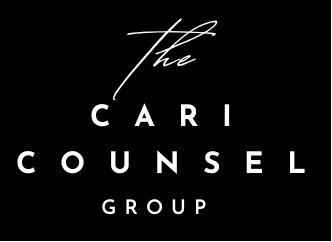Best Trusts Lawyers in Port of Spain
Share your needs with us, get contacted by law firms.
Free. Takes 2 min.
List of the best lawyers in Port of Spain, Trinidad and Tobago
About Trusts Law in Port of Spain, Trinidad and Tobago
Trusts in Port of Spain, Trinidad and Tobago, are a critical aspect of estate planning and asset management. A trust is a legal arrangement where one party, known as the trustee, holds and manages assets for the benefit of another, the beneficiary. Trusts can serve various purposes, including protecting assets, ensuring the efficient transfer of wealth, and managing property. The development of trust law in Trinidad and Tobago draws from both common law principles and statutory provisions, making it essential for individuals to understand the intricacies involved when setting up or managing a trust.
Why You May Need a Lawyer
There are numerous reasons why individuals in Port of Spain may require legal assistance concerning trusts. Whether you're considering setting up a trust to protect your assets, planning your estate to ensure a smooth transfer of wealth to your heirs, or finding yourself in a situation where the terms of a trust are in dispute, professional legal guidance is invaluable. Lawyers specializing in trust law can help navigate the often complex legal frameworks, ensuring compliance with applicable laws and maximizing the benefits of a trust arrangement. Moreover, if you're named a trustee or a beneficiary, understanding your rights and obligations under the law can be crucial, which often requires expert legal advice.
Local Laws Overview
The legal landscape governing trusts in Port of Spain, Trinidad and Tobago, is shaped by a combination of common law traditions and local statutes. Key legislative instruments include the Trustee Act, which outlines the powers, duties, and liabilities of trustees. Additionally, Trinidad and Tobago has implemented regulations to ensure the lawful administration of trusts, including compliance with anti-money laundering laws and tax obligations. Understanding these local laws is crucial for anyone involved in the creation or management of a trust, as failing to adhere to legal requirements can result in significant legal and financial consequences.
Frequently Asked Questions
What is the role of a trustee in a trust?
A trustee is responsible for managing the assets held in a trust according to the terms of the trust document and in the best interests of the beneficiaries. The trustee has a fiduciary duty to act prudently, avoid conflicts of interest, and adhere to any legal obligations.
Can a trust be altered or revoked after it is created?
Whether a trust can be altered or revoked depends on its type. Some trusts, known as revocable trusts, can be modified or terminated by the settlor during their lifetime. Irrevocable trusts, however, generally cannot be changed without the beneficiaries' consent or a court order.
What types of assets can be placed in a trust?
A variety of assets can be placed into a trust, including real estate, stocks, bonds, businesses, and personal property. The specific assets that can be included depend on the purpose of the trust and the settlor's objectives.
How are trusts taxed in Trinidad and Tobago?
Trinidad and Tobago have specific tax provisions that apply to trusts, including income tax on trust earnings. The tax implications can vary based on the type of trust and its structure, hence consulting a tax professional or lawyer is recommended to understand tax responsibilities.
What is the difference between a trust and a will?
A will is a legal document that outlines how a person's estate should be distributed upon death, while a trust can be used to manage assets both during the settlor's lifetime and after their passing. Trusts often provide more privacy and immediate asset management benefits.
Can a trust be contested?
Yes, a trust can be contested in certain circumstances, such as allegations of undue influence, lack of capacity, or improper execution. Legal challenges to a trust typically require substantial evidence and representation by a lawyer.
How can a trust protect my assets from creditors?
Properly structured trusts can offer asset protection by legally separating the trust's assets from personal assets, making it more challenging for creditors to access them. However, it's essential to set up such arrangements well before any claims arise.
Are trusts public documents?
Unlike wills, which become public record once probated, trusts can typically remain private, not requiring public filing. This makes trusts an attractive option for individuals desiring privacy regarding their estate plans.
How long does a trust last?
The duration of a trust can vary based on its terms, type, and purpose. Some trusts are designed to terminate upon the settlor's death or the happening of a specific event, while others might continue for generations.
Who can be a trustee in Trinidad and Tobago?
A trustee can be an individual or a legal entity, such as a trust company, as long as they are capable of fulfilling the responsibilities outlined in the trust agreement. Appointing a reliable and competent trustee is crucial for effective trust management.
Additional Resources
For those seeking further information on trusts in Port of Spain, considering reaching out to governmental bodies and organizations that can offer guidance and support. The Registrar General's Department, Ministry of the Attorney General and Legal Affairs, and legal associations in Trinidad and Tobago can provide additional assistance and resources for individuals and legal professionals.
Next Steps
If you need legal assistance with trusts, start by consulting with a lawyer experienced in estate planning and trust law. They can assess your situation, advise on the legal frameworks applicable to your case, and help draft or manage a trust to fit your specific requirements. It's advisable to prepare relevant documents and questions before your consultation to ensure an efficient and informative session.
Lawzana helps you find the best lawyers and law firms in Port of Spain through a curated and pre-screened list of qualified legal professionals. Our platform offers rankings and detailed profiles of attorneys and law firms, allowing you to compare based on practice areas, including Trusts, experience, and client feedback.
Each profile includes a description of the firm's areas of practice, client reviews, team members and partners, year of establishment, spoken languages, office locations, contact information, social media presence, and any published articles or resources. Most firms on our platform speak English and are experienced in both local and international legal matters.
Get a quote from top-rated law firms in Port of Spain, Trinidad and Tobago — quickly, securely, and without unnecessary hassle.
Disclaimer:
The information provided on this page is for general informational purposes only and does not constitute legal advice. While we strive to ensure the accuracy and relevance of the content, legal information may change over time, and interpretations of the law can vary. You should always consult with a qualified legal professional for advice specific to your situation.
We disclaim all liability for actions taken or not taken based on the content of this page. If you believe any information is incorrect or outdated, please contact us, and we will review and update it where appropriate.















